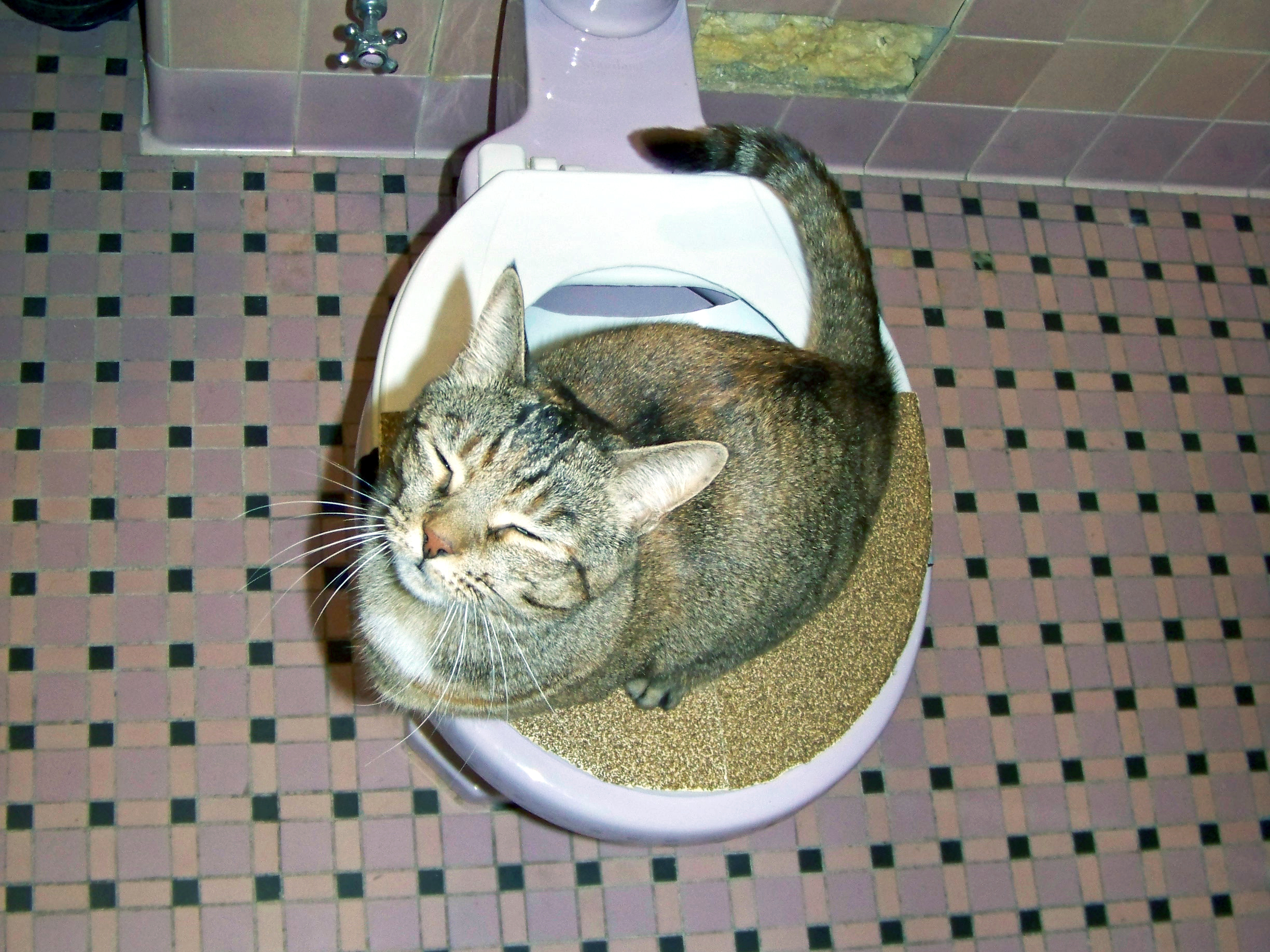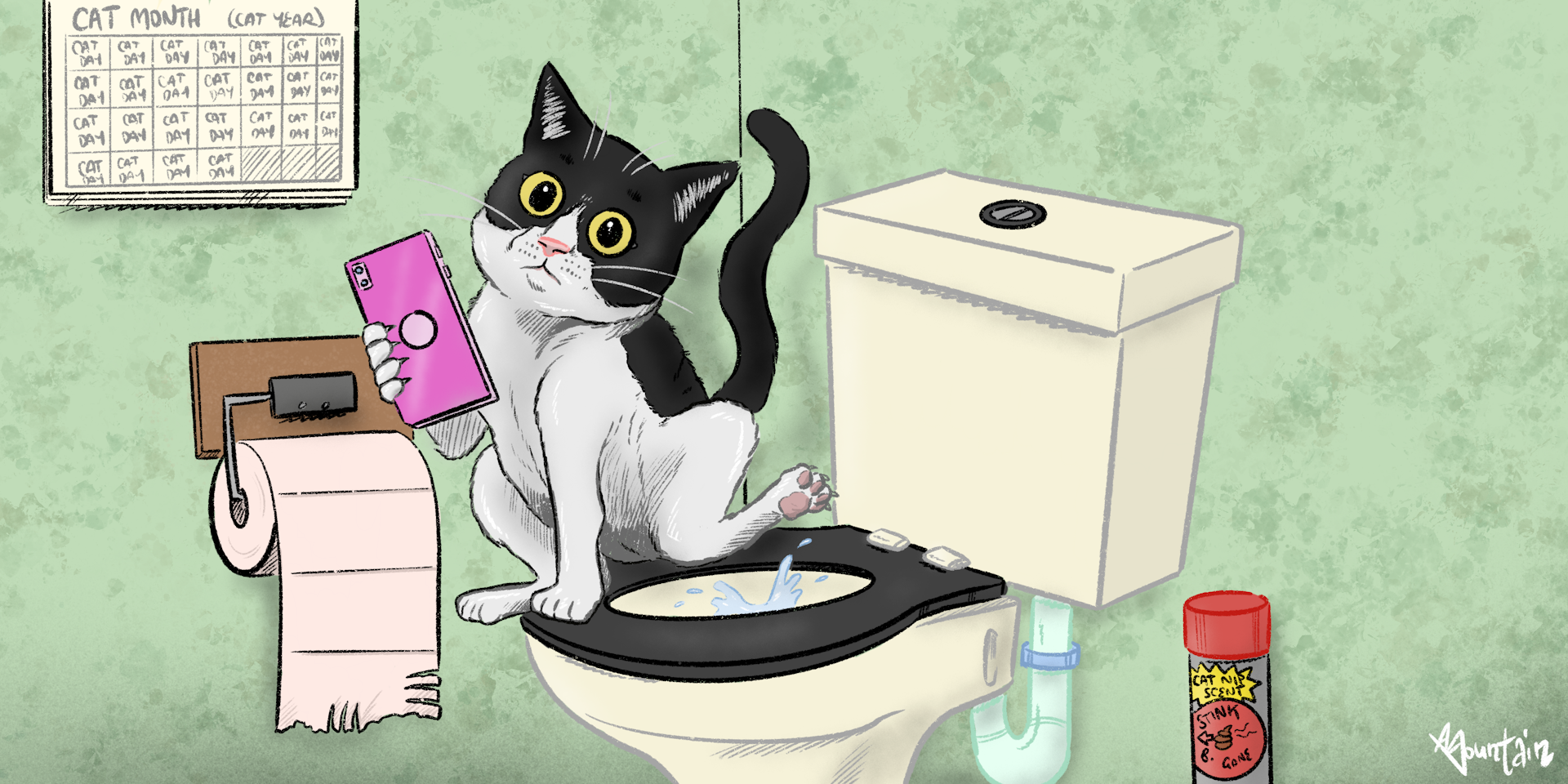Why You Should Never Flush Cat Poop Down Your Toilet - Critical Information
Why You Should Never Flush Cat Poop Down Your Toilet - Critical Information
Blog Article
The article below on the subject of How to Dispose of Cat Poop and Litter Without Plastic Bags is pretty much enlightening. Read it for your own benefit and figure out what you think about it.

Introduction
As cat proprietors, it's necessary to be mindful of just how we get rid of our feline friends' waste. While it might appear convenient to flush feline poop down the toilet, this technique can have detrimental consequences for both the atmosphere and human wellness.
Alternatives to Flushing
Luckily, there are safer and extra responsible methods to deal with cat poop. Take into consideration the adhering to choices:
1. Scoop and Dispose in Trash
The most typical technique of disposing of cat poop is to scoop it into an eco-friendly bag and toss it in the garbage. Make sure to utilize a committed trash scoop and get rid of the waste immediately.
2. Usage Biodegradable Litter
Choose naturally degradable feline trash made from materials such as corn or wheat. These litters are environmentally friendly and can be safely disposed of in the garbage.
3. Hide in the Yard
If you have a yard, take into consideration burying pet cat waste in an assigned area away from vegetable gardens and water resources. Make sure to dig deep enough to avoid contamination of groundwater.
4. Mount a Pet Waste Disposal System
Buy an animal garbage disposal system especially designed for feline waste. These systems utilize enzymes to break down the waste, minimizing smell and environmental impact.
Wellness Risks
Along with ecological issues, flushing cat waste can additionally position wellness risks to humans. Cat feces may consist of Toxoplasma gondii, a bloodsucker that can create toxoplasmosis-- a possibly serious disease, especially for expecting women and people with damaged body immune systems.
Environmental Impact
Purging pet cat poop presents damaging virus and parasites into the water supply, posing a significant risk to water communities. These impurities can negatively affect marine life and compromise water top quality.
Conclusion
Responsible family pet ownership expands beyond giving food and shelter-- it also includes correct waste administration. By avoiding flushing feline poop down the bathroom and selecting alternate disposal methods, we can reduce our environmental impact and shield human health.
Why You Should Never Flush Cat Poop Down the Toilet
A rose by any other name might smell as sweet, but not all poop is created equal. Toilets, and our sewage systems, are designed for human excrement, not animal waste. It might seem like it couldn’t hurt to toss cat feces into the loo, but it’s not a good idea to flush cat poop in the toilet.
First and foremost, assuming your cat uses a litter box, any waste is going to have litter on it. And even the smallest amount of litter can wreak havoc on plumbing.
Over time, small amounts build up, filling up your septic system. Most litter sold today is clumping; it is made from a type of clay that hardens when it gets wet. Ever tried to scrape old clumps from the bottom of a litter box? You know just how cement-hard it can get!
Now imagine just a small clump of that stuck in your pipes. A simple de-clogger like Drano isn’t going to cut it. And that means it’s going to cost you big time to fix it.
Parasitic Contamination
Believe it or not, your healthy kitty may be harboring a nasty parasite. Only cats excrete Toxoplasma in their feces. Yet it rarely causes serious health issues in the cats that are infected. Most people will be fine too if infected. Only pregnant women and people with compromised immune systems are at risk. (If you’ve ever heard how women who are expecting are excused from litter cleaning duty, Toxoplasma is why.)
But other animals may have a problem if infected with the parasite. And human water treatment systems aren’t designed to handle it. As a result, the systems don’t remove the parasite before discharging wastewater into local waterways. Fish, shellfish, and other marine life — otters in particular — are susceptible to toxoplasma. If exposed, most will end up with brain damage and many will die.
Depending on the species of fish, they may end up on someone’s fish hook and, ultimately on someone’s dinner plate. If that someone has a chronic illness, they’re at risk.
Skip the Toilet Training
We know there are folks out there who like to toilet train their cats. And we give them props, it takes a lot of work. But thanks to the toxoplasma, it’s not a good idea.

I discovered that page on How to Dispose of Cat Poop and Litter Without Plastic Bags when surfing around the internet. If you liked our post please be sure to pass it around. Thank you for going through it.
Visit Url Report this page